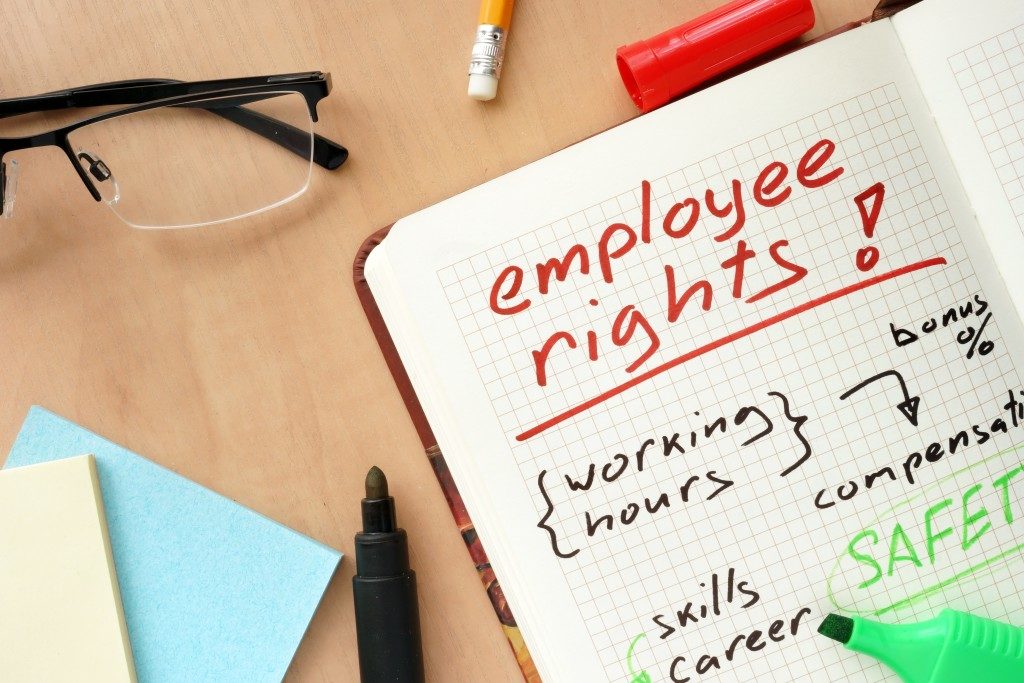• Understand your state laws and policies surrounding drunk driving to ensure you handle the situation correctly.
• Take swift action to ensure you follow applicable laws and regulations, which include a suspension, warning, or termination.
• Offer help to any victims involved and consider providing legal support, counseling services, or an employee assistance program.
• Implement disciplinary action to ensure the employee understands their actions had serious consequences and will not be tolerated in the future.
Knowing the proper steps to take when one of your employees has been caught drinking and driving is important as an employer. It’s a difficult situation that no one wants to be in, but understanding the laws surrounding this offense and having a plan for how to respond can help you handle the situation effectively.
Know Your State Laws and Policies
The first step is to understand your state laws and any policies that are in place related to drunk driving. There may be certain rules or regulations that must be followed when dealing with an employee who has been charged with drunk driving. Additionally, it’s important to know the potential legal ramifications of taking action against an employee for their actions outside of work. Knowing exactly what you can and cannot do will help you take the correct steps moving forward. The following are a few of the most common laws and policies related to employees driving while intoxicated:
- State laws that prohibit the employer from taking any action against an employee for their actions outside of work
- Policies in place that require employers to take disciplinary action upon learning that an employee has been charged with drunk driving
- Laws or regulations related to how you must report the incident to any government agencies responsible for regulating drinking and driving
- Policies that may require you to terminate an employee if they are convicted of drunk driving
Gather All the Facts
Once you have determined what laws or policies must be followed in your state, gathering as much information about the situation as possible is important. The following is the information you should seek to have a clearer understanding of the situation:
- Date and time of the incident
- Location of the incident
- What type of charges were filed against the employee
- Witness statements or any other evidence related to the incident
- Any information from law enforcement about the situation
Take Action Quickly
The information you have gathered will help you determine the best action to take with the employee. Depending on your laws, policies, and the seriousness of the situation, this could mean anything from a verbal warning to termination. It’s important to take swift action to follow all applicable laws and regulations. As the employer, you have the right to do the following:
Issue a Written or Verbal Warning
Drunk driving should never be tolerated. Issuing a formal warning, either written or verbal, is an appropriate action to take. Ensure the employee understands that their actions are unacceptable and will not be tolerated in the future.
Suspend or Terminate the Employee
If the situation is serious, you may have to take more extreme action. Suspending or terminating an employee for their actions outside of work may be legally permissible, depending on your state laws and policies. However, it’s important to proceed cautiously when taking this step, as there can be legal implications if done incorrectly.
Offer Help to Victims
You can look into providing financial or other resources to any victims involved in the incident. This could include offering to pay medical bills, covering lost wages, or helping with legal fees. Doing this can show your commitment to upholding a safe workplace and will help ensure everyone is cared for during this difficult process.
Be Fair and Consistent
Ultimately, it is up to you how you handle this situation—but being fair and consistent with all your decisions is key. If you have decided to give your employee a chance to rectify their mistake, you can do the following:
Provide Legal Support
You could offer legal support if the employee faces any legal repercussions from the incident. This could mean hiring a lawyer for DUI to represent the employee in court. They will be able to explain the employee’s legal rights and ensure they are treated fairly throughout the process. A lawyer can also help reduce any potential penalties the employee may face.
Provide Support Services
Depending on the severity of the situation, you could offer access to any available support services, such as counseling or rehabilitation. This will show your employee that you care about their well-being and want them to have every opportunity for success.
Implement Disciplinary Action
Every action has consequences—even if you offer your employee a second chance. You may need to implement disciplinary action, such as suspension or probation. This will help ensure that the employee understands their actions had serious consequences and will not be tolerated in the future.
Provide Education and Resources
In addition to disciplinary measures, employers should consider providing educational resources and support for their employees. This could include courses on substance abuse, counseling sessions for those seeking help, or even access to an employee assistance program.
Drunk driving is a serious offense, and as an employer, you must handle the situation correctly. If this happens, ensure you understand your state’s applicable laws and policies to ensure you take the necessary steps. With this, you can ensure that any action taken is fair and consistent for all parties involved.





